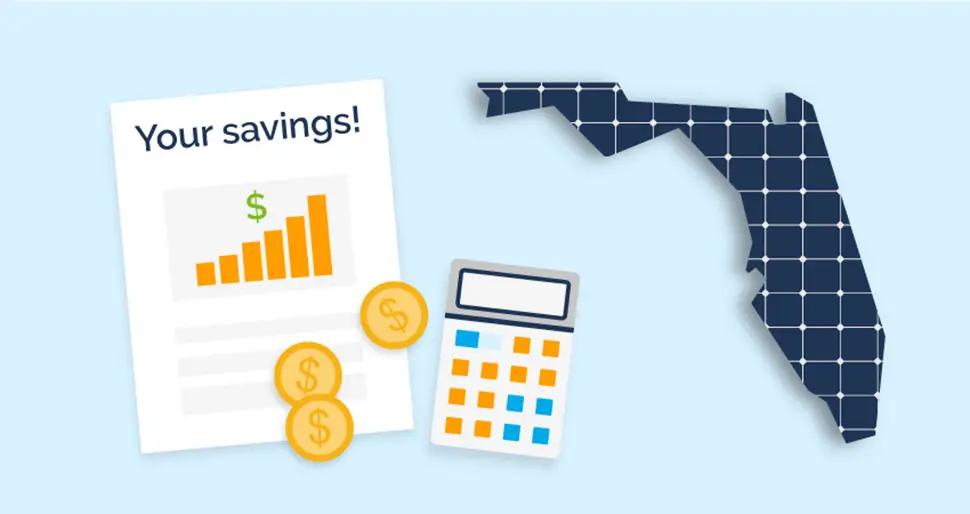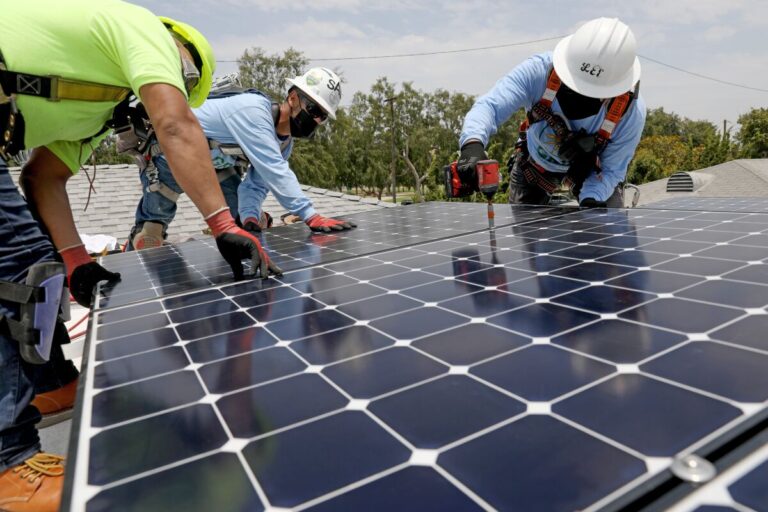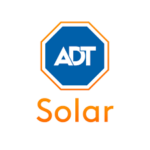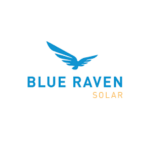Real People, Real Reviews
Home Improvement > Solar > Top Florida Solar Companies
Top Florida Solar Companies of 2023
Timothy Chancellor – Editor
- Fact Checked
Are you looking to get solar panels for your property in Florida? Here are the top rated companies according to verified customer reviews.
Some Quick Tips For Choosing The Right Solar Company In Florida:
- Some prices are too good to be true. Always check the fine print on a solar quote.
- Make sure your chosen provider examines all energy savings solutions to lower the number of solar panels needed.
- ALWAYS choose a highly reviewed, reputable company to install your panels - many Florida solar installers go out of business within the first 2 years.
1. Consumer Energy Association
Consumer Energy Association is a uniquely fair and transparent energy organization dedicated to creating a sustainable future while saving homeowners money through all available programs. Customers raved about the detailed simplicity of installation, and complimented the walk-through process.
2. ADT Solar
While the term ADT may sound familiar to those who know about ADT Security, they recently within the last year have gone solar. Installation times have been said to be very short.
3. Palmetto Solar
Palmetto is one of the few companies that owns the installation process from start to finish. In fact, some of the top solar distribution companies rely on Palmetto behind the scenes to get the job done.
4. Tesla
While you may have heard of Tesla’s electric cars, they also offer residential solar panel installations. Tesla offers a sleek low-profile design.
5. Momentum Solar
Momentum Solar is new to the solar industry, and they only service 10 states. But don’t let them deter you as they have tier 1 quality manufacturers. They also have a convenient concierge service to make installation a breeze.
6. Blue Raven Solar
Blue Raven Solar limits its Florida coverage to Orlando and the surrounding areas, does not offer a solar loan. Unless you can pay for the entire system up front, we suggest you go with another solar company.
Why The Sunshine State is Perfect for Installing Solar Panels

Increased Home Value: Installing a solar panel system in your home can increase its value, making it more appealing to potential buyers.
Property Tax Abatement: Florida residents do not have to worry about increased property taxes after installing a solar panel system, thanks to the state’s Property Tax Abatement for Renewable Energy Property policy.
Sales Tax Exemption: Florida also offers a Solar and CHP Sales Tax Exemption, which protects residents from being charged sales tax on solar products.
Federal Solar Tax Credit: Homeowners can take advantage of the federal government’s Investment Tax Credit (ITC), which provides a tax credit equal to 30% of solar panel installation costs.
Cost Savings: Solar panels can help lower your monthly utility bill and reduce your carbon footprint, leading to cost savings over time.
Financing Options: Homeowners may be able to take advantage of financing through a solar company or a private lender, or consider leasing options.
Maintenance: Solar panel leases typically include maintenance and repair services, providing peace of mind for homeowners.
Environmental Benefits: Solar energy is a clean, renewable energy source that helps reduce dependence on non-renewable sources and reduce carbon emissions.
Transparency Is Key
The best companies make sure you have no questions at the end of a sale. They are upfront about who your installer will be, when your installation will happen, and can guide you selecting the right panels and pricing plan that will fit your needs. Make sure your solar panel company is not only answering all your questions, but also asking YOU questions. If not, it’s unlikely they are accurately building the system to fit your home’s unique power profile.

Compare Quotes From RealReviews.org Verified Companies
- Free, No Obligation
- Get Quote In Minutes
- See Prices From The Top Solar Companies In Florida
The Solar Panel Installation Process in Florida
Consultation: Most solar companies offer free consultations to assess the potential of a solar panel installation in a specific location. The consultation will include the assessment of the amount of direct sunlight the solar array would receive and the suggestion of a specific type of solar panel array. It will also provide an estimate of the potential savings on the homeowner’s current utility bill.
Pricing and Financing: The cost of solar panel installation in Florida usually ranges from $10,000 to $15,000, depending on the number of panels and their efficiency. Homeowners can choose to finance the installation through a solar company or a private lender, or opt for a solar lease that allows for lower energy bills and carbon footprint reduction, with the leasing company taking care of maintenance and repairs.
Permits: In many cases, a permit is required before installing solar panels, which may be included in the installation cost by the installer and acquired by the installer on behalf of the homeowner. The permit alerts the local building authority of the intended installation, who will then send an inspector to examine the installation.
Installation: The first steps of the installation process include the consultation and acquiring the permit. The panels and equipment are then ordered, and the installer will make any necessary roof adjustments or repairs to support the array. The electrical system will be installed, and the mounted panels will be connected. The final step of turning the system on may depend on the inspection by the building authority.
How Does the Federal Solar Tax Credit Work?
The Federal Solar Tax Credit, also known as the Investment Tax Credit (ITC), provides a tax deduction equal to 30% of the cost of installing a solar panel system. This policy was introduced in the Energy Policy Act of 2005 and has been extended multiple times by Congress. The credit rate has fluctuated over the years, starting at 30% from 2016 to 2019, reducing to 26% in 2020 and remaining at that rate until 2022.
However, in August 2022, the Inflation Reduction Act extended the ITC back to 30% for 2022 installations, and it will remain at 30% through 2032. The credit will decrease to 26% in 2033, 22% in 2034, and is set to end in 2035 unless renewed by Congress.
Starting from January 1st, 2023, stand-alone solar batteries with a minimum capacity of 3 kilowatt-hours (kWh) are also eligible for the 30% tax credit, even if they are not directly connected to a solar panel system.
However, in August 2022, the Inflation Reduction Act extended the ITC back to 30% for 2022 installations, and it will remain at 30% through 2032. The credit will decrease to 26% in 2033, 22% in 2034, and is set to end in 2035 unless renewed by Congress.
Starting from January 1st, 2023, stand-alone solar batteries with a minimum capacity of 3 kilowatt-hours (kWh) are also eligible for the 30% tax credit, even if they are not directly connected to a solar panel system.





